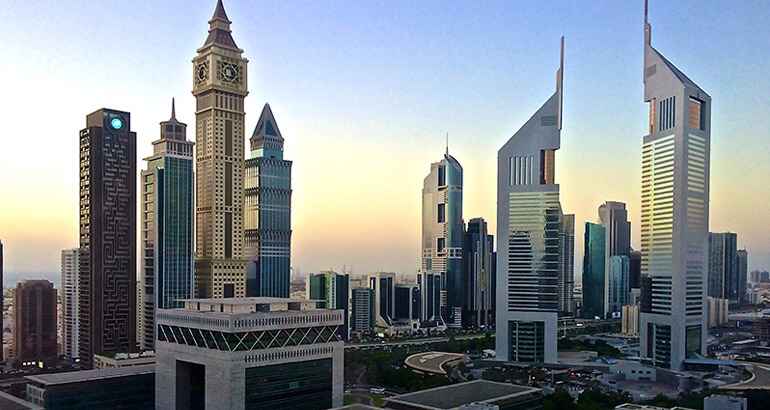All You Need to Know About Company Audit in DIFC

United Arab Emirates is famous for the wonderful business opportunities it provides and also the various facilities and amenities the place offers to the budding businesses. With the presence of an understanding and flexible government, UAE has become a very lucrative place to set up a business for entrepreneurs all around the world. Though the capital of the country is Abu Dhabi, the most famous city in the country is Dubai.
Setting up a company in Dubai is the dream of many entrepreneurs around the world. The presence of the various free zones allows several businesses to establish themselves in the country. There are almost 30 free zones in Dubai, and one of the significant free zones is the Dubai International Financial Centre, known as DIFC for short.
Dubai International Financial Centre (DIFC)
The Dubai International Financial Centre is an exclusive economic zone which was established in 2004 and covers an area of 110 Hectares. It is counted as one of the most advanced financial centers in the world and acts as an economic hub for the MEASA countries (Middle East, Africa, and South Asia). As the name suggests, this free zone was established with the aim of managing and development of the financial companies in the country. This free zone is now considered as one of the fastest growing free zones in the country. Dubai International Financial Centre (DIFC) includes the Dubai Financial Exchange (DIFX), which has been rebranded as NASDAQ Dubai.
Benefits of Setting Up a Business in DIFC
The DIFC is one of the two finance-based free zones which makes setting up a business in the free zone a very lucrative option, especially for a finance-based company. The various benefits of setting up a company in DIFC are:
- No Corporate or personal income tax
- The use of dollar dominates the free zone
- The money laundering laws are stringent in the free zone
- Data protection and data security
- Free flow of information and transparency
- Presence of an International Stock Exchange
- Availability of skilled and professional people
- State-of-the-art infrastructure, advanced technologies, and accessible transportation
- Presence of Internationally accepted laws and compliance procedures
The companies in the free zone are supervised and regulated via several regulatory authorities.
Regulatory Authorities in DIFC
There are 3 regulatory authorities with their own set of functions. The names of these regulatory authorities are:
1. Dubai International Financial Centre Authority (DIFCA)
The Dubai International Financial Centre Authority is a supervisory authority which is managed and helps in the development of the various companies that are set up in the DIFC. This authority was formed due to the Dubai Law No. 9 of 2004. One of the critical jobs of the DIFC authority is that it plays a significant role in the formation and development of laws and other regulations related to financial services firms.
2. Dubai Financial Services Authority (DFSA)
The DFSA is a self-governing authority which supervises and regulates financial and related services which are conducted in the free zone or out of it. It is the job of the DFSA to monitor if the companies established in the free zone are compliant to the rules and regulations of the free zone. The powers of the DFSA come from the DIFC Law No. 1 of 2004. This law allows the authority to take individual decisions and make rules which will affect the financial market and also cater to the requirements of the companies.
3. DIFC Courts
The DIFC Courts are also formed under the Dubai Law No. 9 of 2004, which grants it the power to act as a self-governing administration of justice in the free zone. It helps resolve all types of civil and commercial conflicts that occur in the free zone. The DIFC Courts ensure that the highest level of standards for dispute resolution and legal proceedings are being followed.
These 3 regulatory authorities ensure that a company faces no problem in the free zone while conducting its business. The free zone also has individual audit requirements which need to be followed by the companies that are set up in the area.
Need for Audit in DIFC
As the free zone caters mostly to the finance-based companies, the need for audit services is evident to every one of them. The free zone itself has its laws and rules about Audit that every company needs to company with.
The DFSA regulates the Audit of the companies situated in DIFC, and all of them are required to have an audit. This Audit will help in the improvement of the management of the companies and will ensure that the company is complying all the rules and regulations. The audited financial statements should be submitted within four months of the fiscal year ending.
It is to be kept in mind that not any Accounting and CA firm cannot perform an audit in the free zone. A DIFC approved auditor can only perform an audit in the free zone, or a DIFC approved auditing firm. The list of the DIFC approved auditors, and the approved auditing firm is given on the DIFC website.
If you are looking for auditing services in the DIFC, you can avail the services of JAXA Chartered Accountants. JAXA is an auditing firm which is recognized and approved by DIFC and delivers the best quality audit services. JAXA also provides various other services such as accounting, bookkeeping, and VAT and Tax calculation. For details on the services provided by JAXA, do contact us – we’d be happy to help!